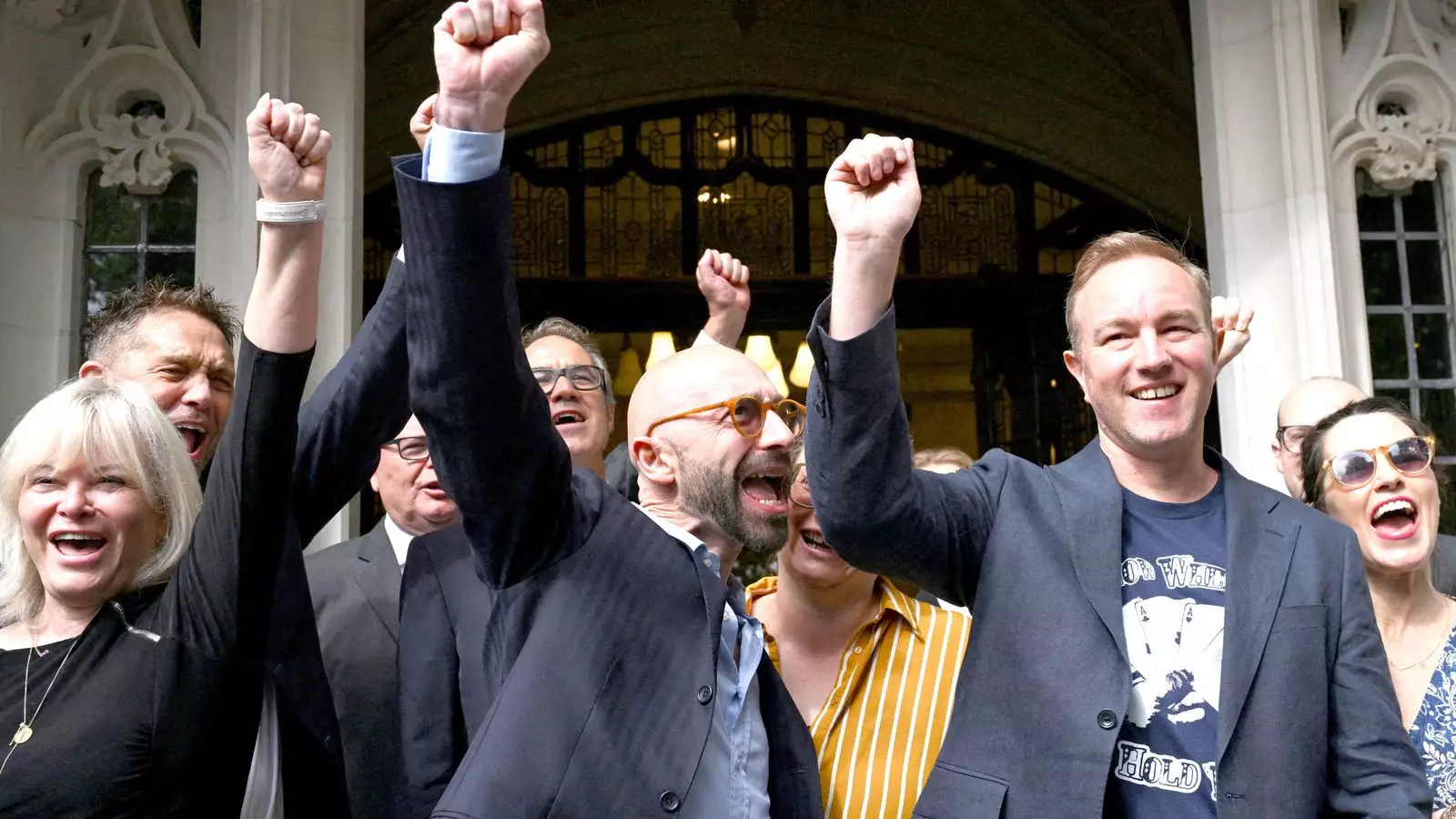The recent decision by the UK Supreme Court to overturn the convictions of traders Tom Hayes and Carlo Palombo exposes a troubling reality about the purported justice system that claims to uphold fairness and accountability in white-collar crime. For years, these men were condemned as scapegoats for the 2008 financial crisis, emblematic of unethical practices that supposedly devastated the global economy. Yet, their legal reversals suggest a deeper, systemic flaw: the justice system’s eagerness to serve narratives of corruption while neglecting nuanced, complex truths. It raises uncomfortable questions about the integrity and consistency of prosecutions against financial professionals, and whether the punitive measures have been driven more by political or media pressures than genuine evidence.
In essence, the convictions, which once seemed decisive and punishing, now appear as tragic miscarriages rooted in a rigid and, perhaps, biased interpretation of financial law. The court’s acknowledgment that jury mistakes played a role in the previous convictions implies that a substantial part of what was previously considered incontrovertible evidence was, in fact, misjudged. This throws into stark relief how easily legal processes can be manipulated by a narrative that condemns bankers en masse—an approach that overlooks systemic issues. Justice, in this case, becomes a casualty of fear and political optics, rather than a pursuit of truth.
The Myth of Criminal Culpability in a Complex Financial Landscape
The case of Hayes and Palombo underscores an inherent flaw in attempting to criminalize behaviors that are, in many respects, ingrained within the very fabric of financial markets. Hayes, characterized as a mathematician and a figure of significant talent, always claimed that his actions were within the bounds of accepted practice at the time and conditioned by the culture of the institutions he worked for. His defense posited a simple reality: financial benchmarks like Libor and Euribor were complex and often manipulated informally, with bank interests subtly influencing rate submissions. To criminalize such conduct as outright fraud represents an oversimplification that ignores the historical and systemic context.
Furthermore, the Supreme Court’s findings that the original convictions relied on flawed jury instructions reveal a troubling disconnect between legal standard and reality. The court’s recognition of “ample evidence” for conviction had, due to misdirection, led to unsafe rulings. This not only casts doubt on the fairness of the original trials but also questions the legitimacy of the entire prosecutorial approach used to target traders—many of whom were simply cogs in a machine that rewarded risk-taking and adaptability. If the rules of engagement in finance are ambiguous or loosely interpreted, does it make sense to punish individuals as if they committed overt criminal deception? Or are these prosecutions scapegoating a sector that, for years, has operated within a murky legal and ethical environment?
The Dangerous Oversimplification of “White-Collar Crime”
The narrative shift prompted by the Supreme Court’s decision highlights a broader issue: the dangerous tendency of the justice system to reduce complex financial misconduct to clear-cut criminal acts. Hayes’s case, in particular, exposes how legal definitions, when rigidly applied without considering industry norms or contextual factors, turn into instruments of injustice. His characterization as the “ringmaster” in a grand scheme was likely an oversimplification—an attempt to fit a narrative of greed and misconduct into legal boxes that may not accurately capture the reality of financial market operations.
This overreach fuels public misconception about the nature of financial crime. It overshadows the fact that misconduct often stems from the pressures, incentives, and culture cultivated within the industry itself—factors that are difficult to regulate through criminal law alone. The punitive focus on individuals neglects the broader, systemic failure to establish clear, enforceable standards that align with actual market functions. As a result, these prosecutions tend to serve as symbolic gestures rather than meaningful holds against the structural flaws that created the environment for manipulation in the first place.
The Implications of Overturned Convictions for Justice and Reform
The overturning of Hayes and Palombo’s convictions is a watershed moment—it challenges the prevailing orthodoxies that have long dominated the narrative of financial misconduct. For one, it questions whether the justice system has been biased against traders, viewing them as inherently criminogenic, despite the lack of concrete evidence for individual guilt. Their case illustrates how systemic flaws, ambiguity in market practices, and legal misinterpretations can lead to wrongful convictions, tarnishing reputations and undermining public trust.
Moreover, this judicial rebuke calls into question the broader pursuit of criminal accountability within the financial sector. If the convictions were based on flawed legal reasoning, then perhaps it is time to reconsider the entire approach to prosecuting white-collar crime—moving away from sensational headlines and toward meaningful regulatory reforms that acknowledge the complex realities of financial markets. It also emphasizes the necessity for transparency, fair trial processes, and acknowledgment of industry norms in legal proceedings. Pushing for accountability should not come at the expense of justice; rather, it must be grounded in a nuanced understanding of how financial markets genuinely operate.
In the wake of these reversals, the debate intensifies: are we truly seeking justice or merely perpetuating a punitive cycle aimed at reassuring the public? To rebuild trust, the system must recognize its shortcomings and shift toward a more balanced, informed approach—one that balances accountability with fairness, and understands that in the world of finance, the line between legitimate practice and misconduct is often blurred.


Leave a Reply